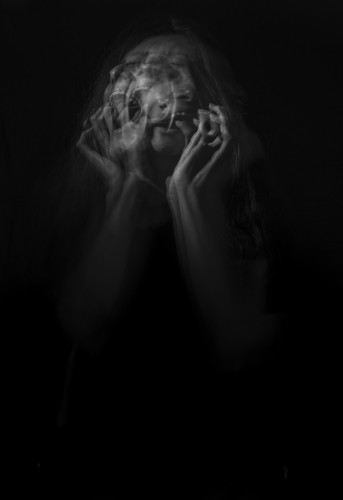Haunted by Ghosts
As was discussed in our article Ghosts Can Be More Than Just Dead People, ghosts are generally the spirits of humans and animals that have passed away. What people assume or claim are ghosts are not necessarily fitting of their description, but it’s easy to understand why the whole thing might be a little bit confusing. The truth is, is that ghosts, demons, and poltergeists are often mislabeled and it, therefore, makes it more difficult to really know what kind of being the evidence acquired actually points to. Ghosts, spirits, and apparitions all point to the same thing—the spirit or soul of a human or animal that has passed on. These spirits haunt locations, objects, and most importantly other living creatures. Haunting living creatures is not to be confused with possessing living creatures, not to say they are unable to possess, but not all possessions are ghostly in nature—and this is an important distinction to be made.
Possessed by Demons
Another topic for confusion is how demons are perceived, this is unfortunate because much of the evidence for demons seems to simply be cases of malevolent ghosts and not entities that are truly demonic in nature. One such misinformed definition, from Rosemary Ellen Guiley’s The Encyclopedia of Ghosts and Spirits, is that demons are, “a type of spirit that may be either good or evil that allegedly has the ability to intervene in the affairs of humankind.” While it’s true that many cultures perceive some demonic entities to be good, the word spirit was a poor choice in attempting to define what a demon actually is.
Religious definitions, such as the one from Christianity, assert that demons are evil minions of Satan and that their sole purpose is to torment people, then inevitably lead them into sin. The strategic takeover of pagan cultures turned their deities into demons in Christianity. Other religions, however, suggest that demons can be good or evil entities—or indeed have a dual nature like human beings. Regardless of the nature of the entity, good or evil, demons quite often exercise their ability to possess or inhabit living creatures. There are instances reported where demons have possessed inanimate objects, but this can be chalked up to another case of a ghost that has been mislabeled as a demonic entity.
Terrorized by Poltergeists
Demons and poltergeists are also quite frequently confused for one another—the main reason for this is because Poltergeists are mischievous and often malicious spirits or energy. Ghosts and poltergeists also confused for each other, but poltergeists, in particular, are entities or energies identified by their consistent abilities to interact in a vigorous way with their environment. It would be unfair to say that poltergeists are not, in fact, a type of ghost or spirit, but if they are to be classified as ghosts in any sense, they are in a league of their own entirely.
The earliest reports of poltergeists tell of the different types of interactions they have within the environment that they inhabit. These interactions include, but were not limited to, throwing rocks or other objects, loud noises (such as shrieking, and knocking or rapping), inexplicable lights and apparitions, as well as in rare cases sexual assaults. Later cases would grow to include technology-related events, such as phone numbers being dialed repeatedly or televisions turning on. The speculation that remains with poltergeists relates to the scientific data that has been collected in pursuit of evidence of their existence—many cases of poltergeist activity have clear indications of mental problems within the agent (or the primary person being affected) that even support theories of psychokinesis.
Hopefully, this helps answer an age-old question we often see: “What is the difference between a ghost, a demon, and a poltergeist?” Below are a few scary movie recommendations related to ghosts, demons, and poltergeists.
- The Fog 1980 a classic seafaring ghost story and The Fog – 2005 full of evil spirits from a cursed, haunted ship. We also have more seafaring ghost movie recommendations here.
- Poltergeist – The Original poltergeist film From 1982 – A classic in its own right
- Tales from the Crypt: Demon Knight – 1995 is a fun demon horror film starring Billy Zane and Jada Pinkett Smith

Georgia-based author and artist, Mary has been a horror aficionado since the mid-2000s. Originally a hobby artist and writer, she found her niche in the horror industry in late 2019 and hasn’t looked back since. Mary’s evolution into a horror expert allowed her to express herself truly for the first time in her life. Now, she prides herself on indulging in the stuff of nightmares.
Mary also moonlights as a content creator across multiple social media platforms—breaking down horror tropes on YouTube, as well as playing horror games and broadcasting live digital art sessions on Twitch.


